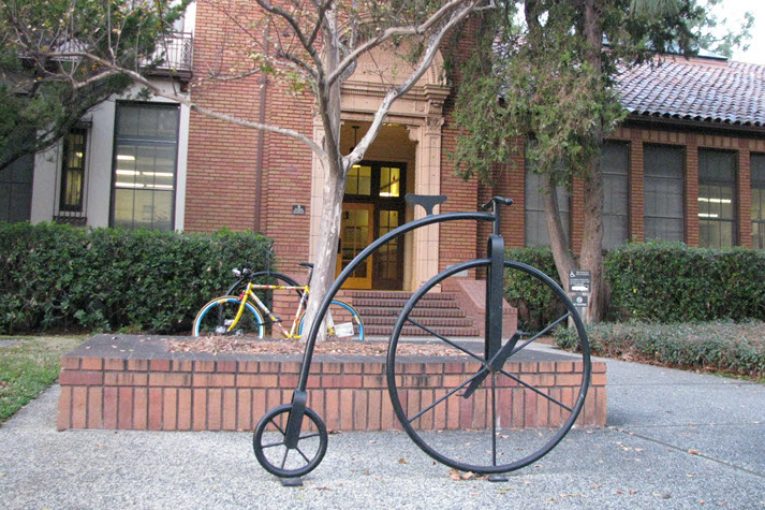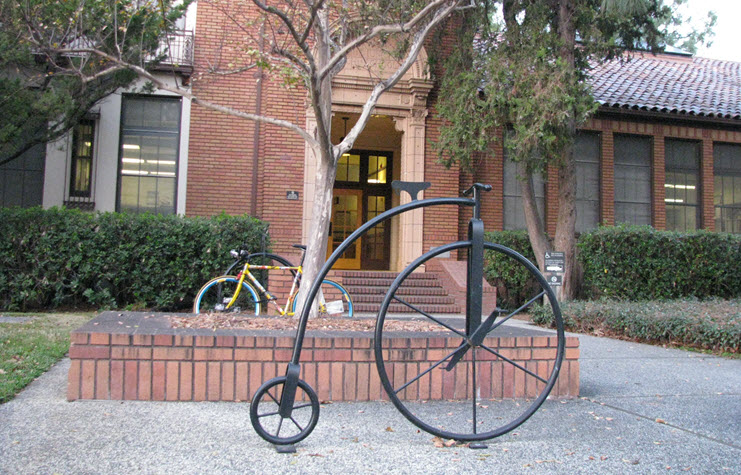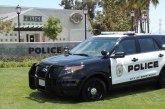
 By David M. Greenwald
By David M. Greenwald
Executive Editor
Davis, CA – Back in 2019, the Davis City Council adopted its first legislative platform recognizing the need to more actively lobby the state legislature for funding and other legislative change.
The result of that was ultimately “an additional $2.7 million for the Interstate-80/Richards Boulevard Interchange Improvement Project, resolved a parking issue at the Amtrak Station, and paved the way for fruitful staff discussions with the California Department of Housing and Community Development (HCD) and the Sacramento Area Council of Governments (SACOG) on Regional Housing Needs Allocation (RHNA) processes.”
The 2021 platform, supported several successful actions as well including obtaining $20 million in federal assistance to address the coronavirus pandemic and to offset its negative fiscal impacts on the City of Davis. There was also the award of an “$86 million federal grant to address severe traffic problems on the Yolo Causeway; $2.8 million in state parks funding to build a new water-efficient splash pad and memorial in Central Park; and $57 million in new state funding now being allocated statewide to support efforts to divert organics and safe and edible foods from our landfills to  address climate change.”
address climate change.”
The Council Subcommittee of Councilmember Dan Carson and Vice Mayor Lucas Frerichs, in consultation with City staff, are proposing the following 2022 Legislative Platform:
- Infrastructure Bills. Track, and advocate for, proposed bills and allocations of funding from recent federal infrastructure legislation and the 2021-22 adopted state budget that address funding for infrastructure needs. This includes broadband networks that could improve speed, reliability, and affordability of broadband access for residential and commercial users and local government agencies and schools; maintenance of local streets and roads and bike paths; and new transportation infrastructure needed to address traffic safety concerns and encourage active transportation modes such as walking and bicycling as well as public transit. New plazas and street improvements could make downtown more pedestrian- and bicycle-friendly and spark the economic revival envisioned in our draft Downtown Specific Plan. Likewise, projects envisioned in the nearly completed Reimagine Russell plan or other corridor plans could reduce traffic conflicts among bicyclists, pedestrians, transit busses and cars. Implementation of Safe Routes to School on local Davis streets would also be a high priority. A $10 billion transportation package offered by the Assembly includes additional local funding for road repair work that could help close the funding gap we face for these important infrastructure needs. Continue to support ACA 1 by Assemblymember Cecilia Aguiar-Curry, to lower the necessary voter threshold to approve revenues for affordable housing and public infrastructure projects.
- I-80 Corridor. Remain directly engaged in supporting Caltrans’ efforts to implement the Yolo I-80 Corridor Improvement The $86 million award of federal funds for the project was achieved with effective advocacy in partnership with our Yolo County, federal and state representatives, and SACOG. These funds will provide a strong and substantial start for the Yolo Causeway project. But additional resources would be helpful to implementing the full vision of a multi-modal approach to transportation solutions, including active transportation and public transportation modes, that Caltrans is pursuing.
- East Chiles/I-80 Flood Protection. Support efforts to secure state funding to address serious flooding that occurs in the vicinity of the Chiles Road off-ramp and the Vic Fazio Wildlife Area where water runoff from I-80 collects in water retention basins owned by CalTrans. Funding is needed to complete alternatives analysis to determine a viable outfall discharge option, prepare design plans, acquire approvals, and construct Yolo County has submitted a proposal to Assemblymember Cecilia Aguiar-Curry, and Davis has supported the request.
- Taxpayer Protection and Accountability Oppose the Taxpayer Protection and Accountability Act, which is now being circulated for the November 2022 ballot. It would impose additional restrictions on the city’s ability to levy tax and fee revenues needed for the support of critical public services like police and fire protection.
- Water Urge support for additional state assistance to help cities such as Davis implement changes that would encourage greater water conservation by our residents and the city itself, such as replacement of traditional lawns by drought-tolerant landscaping and drip irrigation, but voice concern about new state mandates that create significant technical challenges for the operation of our water and wastewater systems.
- Climate Action and Adaptation (CAAP). The city is nearing completion of an update of its 2010 CAAP that includes bold new efforts to reduce greenhouse gas emissions in our transportation and building sectors and new actions to help make our community more resilient in the face of extreme heat events, drought, toxic air from wildfires, and flooding risks posed by storms. Accordingly, we will work in support of legislation such as SB 852 (Dodd) that could provide critically needed financial resources to reduce GHG emissions and help Davis adapt to major changes in our climate that are already impacting our (SB 852 would allow local jurisdictions to form climate resilience districts in order to address the effects of climate change.) Continue to support the allocation of grant and funding opportunities that provide resources to implement the state mandated SB 1383, which deals with food waste diversion, organic waste, and the reduction of greenhouse gases.
- COVID Assistance. Look for new opportunities to encourage Congress and the state to assist cities that need flexible COVID assistance, particularly direct assistance to cities Davis’ size, in the event that new variants of COVID continue to put a strain on our city, our renters and landlords, and our business
- RHNA Process. Advocate and engage with our state representatives on legislation and administrative rules related the Regional Housing Needs Allocation (RHNA), particularly with respect to the types of housing units that are more unique to college communities. We will continue to work with HCD and SACOG representatives and other stakeholders to consider bedroom counts in by-the-bed projects when quantifying RHNA credit. We should also explore whether the University of California and other educational institutions should be assigned their own RHNA targets to provide affordable housing for their student body, and funding assistance for the provision of affordable housing.
- Affordable Housing Bills. Advocate for the promised continuation of a new state funding stream, first approved in the 2021-22 state budget, that would provide cities such as Davis with substantial, flexible and permanently continuing resources allocated on a population basis without bureaucratic grant applications for the support of specific programs to address our housing and homeless as well as our Housing Trust Fund. Support the provision of additional state budget funding for affordable housing on public university campuses, including the University of California.
- Housing Monitor and consider support for efforts by the League of Cities, SACOG, and the State Legislature to seek expedited judicial review and CEQA streamlining for housing projects that meet with local and regional policy priorities.
- Crisis Now. In collaboration with other cities and Yolo County, continue to pursue federal and state funding opportunities to assist in the successful implementation of a Crisis Now program. This program would initiate a new 988 emergency call number that could help divert numerous mental health crisis calls from the Davis Police Department 911 system to county or regional call centers staffed by mental health and social services clinicians and counselors.
- Sales Tax Legislation. Continue to track sales tax legislation, particularly as it relates to internet sales. We seek regulatory and legislative options to amend the State’s allocation method for distributing sales tax. Instead of basing the allocation on the proportion of other taxable sales, the City suggests basing the allocation on the place of sale for in-person transactions and the destination for online transactions.
- Grant In general, seek opportunities to support grants or funding that address needs identified in the City’s Comprehensive Funding Plan for grants.
- Valley Clean Energy. Support ongoing legislative efforts to help VCE, our local clean power agency, in which the City of Davis is a partner, to overcome legislative and regulatory challenges that could slow its This includes continued support for SB 612 (Portantino).






